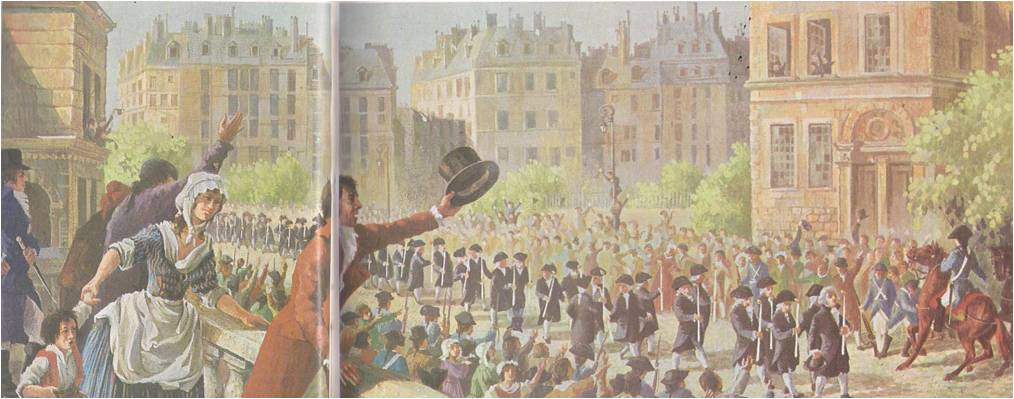On Sunday, July 12, 1789, the people of Paris learned that Necker, the popular minister, had suddenly been dismissed by the king. They could only guess at the king’s reasons for wanting Necker out of the way. It seemed clear enough that Necker’s dismissal had something to do with the recent arrival of Swiss and German troops in the Paris area. It was said that more troops were arriving every day. Why? People were almost afraid to guess at the answer. The news of Necker spread quickly and angry crowds gathered in the streets. A young man named Desmoulins leaped …
Read More »Tag Archives: Necker
The Voice of the People 1789
The sun had broken through the clouds after a night of spring showers. Dripping leaves sparkled in the golden light, which flooded the gaily decorated streets of Versailles and the broad terraces of the king’s royal palace. It was May 4, 1789, the day of the opening ceremony of the recently elected Estates General. The streets were crowded with visitors, most of them from Paris, only a few miles away. They had come to see the grand procession of the Estates General and were in a holiday mood. The shops were closed. Local citizens watched from windows, crowded balconies and …
Read More »
